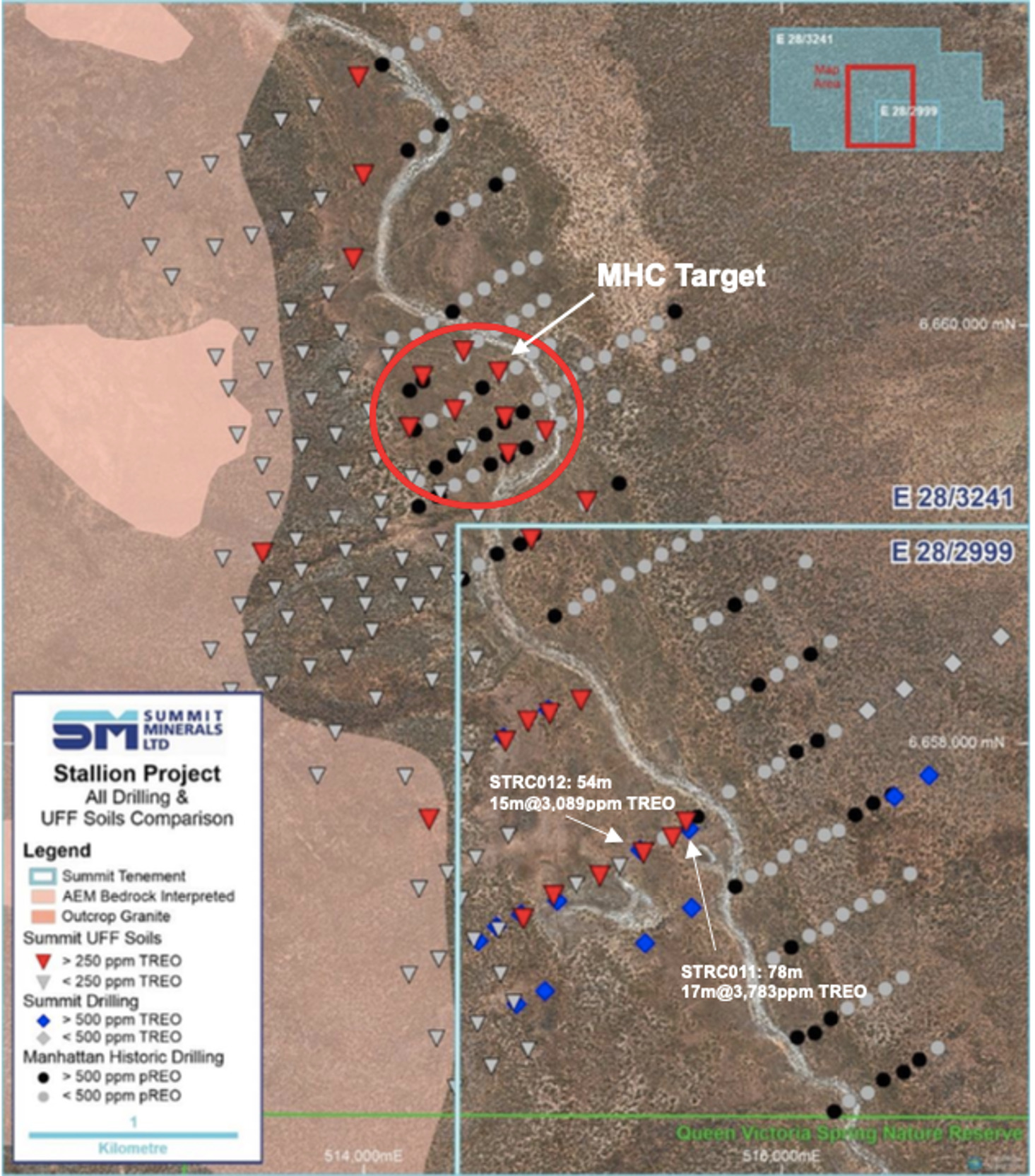You might be interested in
Mining
Summit hits the ground running with exploration to kick off at freshly acquired niobium projects in Brazil
Mining
35.54% niobium?! ASX explorer aims to scale the Summit of Brazil’s critical minerals sector
Mining
Mining
UltraFine+ soil analysis has confirmed more exploration upside to the north of Summit Minerals’ emerging Stallion Rare Earth Elements (REE) project in WA.
Analysing soil samples for minerals or pathfinder elements is a technique used by explorers to dial in on potential drilling targets.
Traditionally, particles around a quarter of a millimetre in size (or 250 micron) were considered the smallest fraction of soil to be analysed.
Developed by the big brains at the CSIRO and now widely used by industry, the UltraFine+ process picks up and analyses particles less than two microns in size.
For context, a piece of dust you might see with the naked eye is around 25 microns.
“These ‘ultra-fine’ soil particles, such as clays and iron oxides, have more surface area which can bind gold and other metals that move through the environment and so form geochemical signatures of orebodies laying many metres below soil or sand,” says the CSIRO.
Yesterday Summit Minerals (ASX:SUM) announced it had completed 14-hole drilling campaign at Stallion, returning up to 1,664ppm TREO and confirming widespread rare earth mineralisation which remains open along strike to the north.
And it looks like north is where the exploration potential lies, with new soil sampling using the UltraFine+ technique uncovering an additional REE mineralised zone (MHC Target).
A total of 113 UFF samples were collected at Stallion and extending north over the MHC target, interpreted from the review of Manhattan Corporation’s (ASX:MHC) historical drilling.
Numerous anomalous rare earth oxide (REO) results extending over a 4km length were returned, confirming the MHC target could unlock further potential to grow the project.
“The company is pleased to receive positive soil responses from these complex regolith environments,” exploration manager Jonathan King said.
“The strong spatial coincidence between the anomalous soils and drill-indicated REO mineralisation from recent and historical drilling, separated by up to 40 metres of cover, is an exciting development for Summit.
“The knowledge gleaned from this campaign gives the company confidence as to the size and scale of the potential resource.
“It also helps us best target future drilling, which should significantly reduce future discovery and exploration costs across the tenement package.”

The company says results to date support employing the Ultrafine+ technique for target delineation work in the broader exploration of the tenements (having a combined area of 162 km2), reserving cash for drilling only where warranted.
An interim maiden resource is being considered before a Phase 3 drilling campaign aiming to grow the mineralised zone by expanding onto the adjoining tenement.
Drilling will also move north to confirm the MHC target on the Stallion North tenement.
Metallurgical work will also continue with the trial of stronger leaches on the mineralised material before advancing with beneficiation tests and characterisation work to define the REE species present and how they are held.
This article was developed in collaboration with Summit Minerals, a Stockhead advertiser at the time of publishing.
This article does not constitute financial product advice. You should consider obtaining independent advice before making any financial decisions.